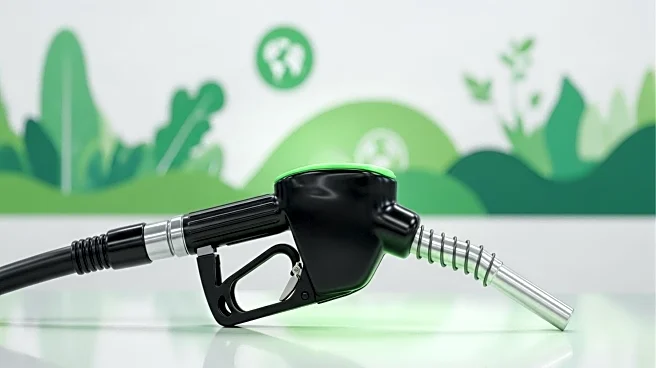What is the story about?
What's Happening?
The Environmental Protection Agency (EPA) has proposed a plan under review by the White House that would require large oil refineries to cover approximately 50% or less of the biofuel blending requirements recently waived for smaller facilities. This proposal could result in a loss of demand for about 550 million gallons of renewable fuel, potentially increasing the supply of renewable fuel credits and affecting their price. The plan aims to balance the interests of the biofuel industry, which seeks full restoration of lost demand, and the oil industry, which resists additional obligations. The proposal is intended to stabilize the market for Renewable Identification Numbers (RINs) without imposing excessive burdens on refiners.
Why It's Important?
The proposal reflects ongoing tensions between the biofuel industry and the oil sector, both influential in U.S. energy policy. The biofuel industry and farm-state lawmakers advocate for full compensation for waived blending quotas, while the oil industry seeks to minimize compliance costs. The EPA's plan attempts to strike a compromise, maintaining market stability for RINs while addressing the needs of both sectors. This decision could impact the renewable fuel market, affecting prices and demand, and has implications for U.S. energy policy and agricultural interests.
What's Next?
The proposal is expected to be finalized by October 30, ahead of the deadline for biofuel blending quotas for 2026-2027. The EPA continues to evaluate options to balance obligations and reallocation, considering feedback from stakeholders. The outcome will influence future biofuel policy and the relationship between the biofuel and oil industries.















